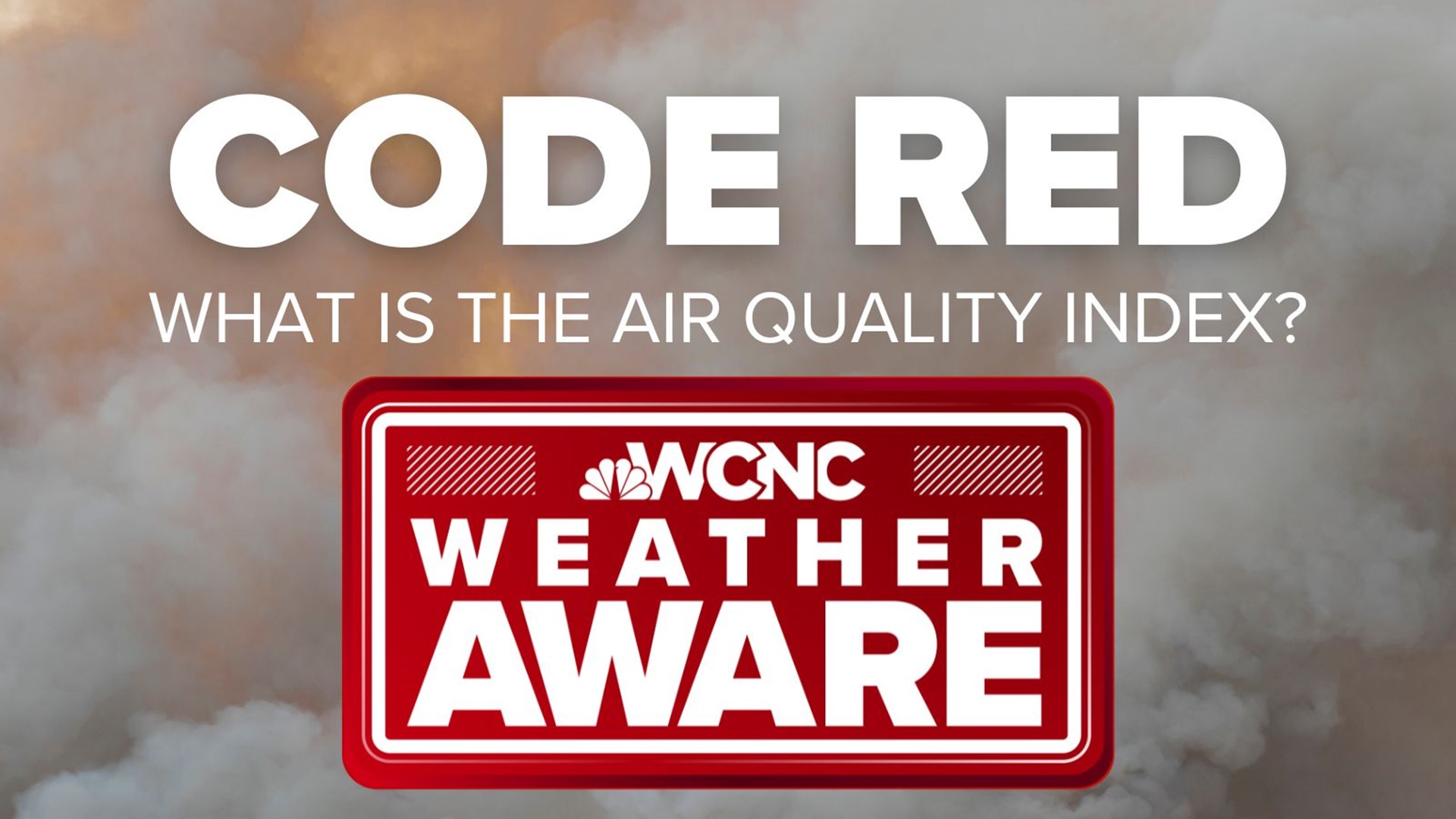CHARLOTTE, N.C. — The Charlotte area was under a Code Red Air Quality Alert Tuesday for "unhealthy" air caused by smoke from Canadian wildfires drifting into the Carolinas this week. WCNC Charlotte Chief Meteorologist Brad Panovich said better air quality days are ahead, though.
A Code Red Air Quality Alert means the air is unhealthy for some members of the general public and not just people who have health-related sensitivities, such as asthma or emphysema.
Tuesday was an interesting situation. Most of the Carolinas were under a Code Orange, but the Charlotte metro was a Code Red. The Code Red extended from Greenville, South Carolina, to Greensboro, North Carolina. The Code Orange ran until midnight.
Air quality data collected at Friendship Park, along Remount Road, and at Garinger High School reached the Code Red level Monday evening after slowly experiencing a decrease in air quality throughout the day. Air quality, which is measured on a 0-to-500 scale called AQI, reached 151 on those sites. Code Red, which is considered unhealthy air quality for most individuals, requires a AQI of at least 150.
"Code Orange was the forecast," meteorologist Chris Mulcahy said Tuesday. "We are right now at about a 155 to 160, so we're just above Code Orange. When you reach a Code Red, that affects everyone."
Elsewhere across Mecklenburg County, also showed some decrease in air quality because of the smoke particles.
Everyone is encouraged to limit strenuous activities outside such as exercise. Those especially sensitive to air quality, including individuals with respiratory-related health conditions such as asthma and heart disease, are encouraged to stay indoors. Those groups would also include the very young and elderly.
Using an air conditioner can help filter the air before it enters the home. Individuals are also encouraged to limit strenuous outdoor activities such as exercise.
Code Red conditions were also present in portions of the Northeast, Midwest, and Central Plains regions of the United States.
This was the third time this year Charlotte has experienced Code Red air quality. Before 2023, a Code Red had not been observed since wildfire smoke in western North Carolina blew into Charlotte in 2016.
Monday's smoke was yet another example of how smoke can travel thousands of miles across North America. The smoke is carried by the jetstream, the same winds which move weather systems across the continent. Monday's smoke was the result of low and high-pressure systems moving air from western Canada across the Midwest and into portions of the East Coast.
For the latest weather alerts, download the WCNC Charlotte mobile app and enable push notifications.
Canadian officials say this is shaping up to be the nation's worst wildfire season ever, the Associated Press reported. The season started early on drier-than-usual ground and accelerated very quickly, exhausting firefighting resources across the country, fire and environmental officials said.
WCNC Charlotte’s Weather IQ YouTube channel gives detailed explainers from the WCNC Charlotte meteorologists to help you learn and understand weather, climate and science. Watch previous stories where you can raise your Weather IQ in the YouTube playlist below and subscribe to get updated when new videos are uploaded.

